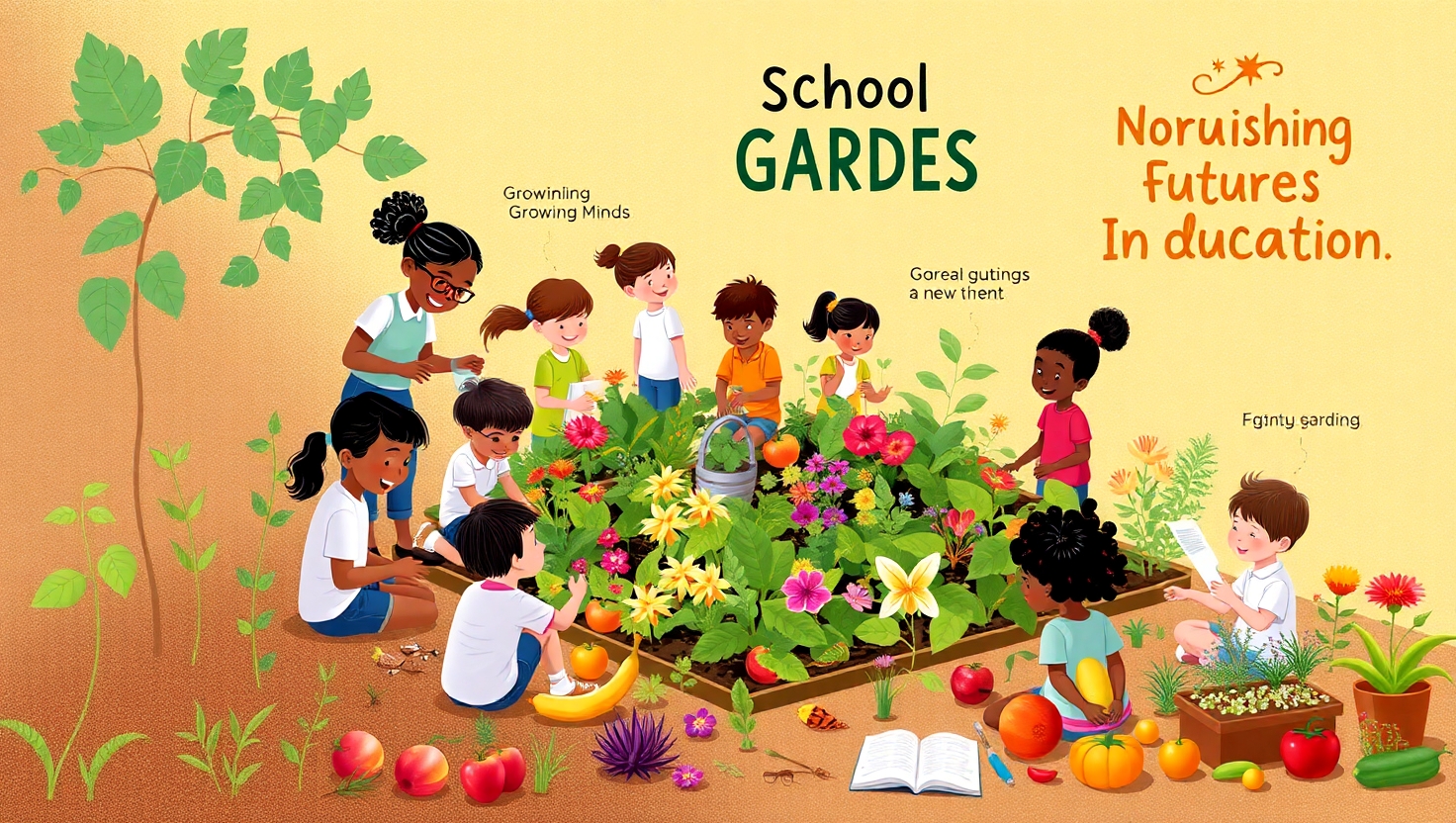The Importance of School Gardens in Education
In today’s fast-paced, technology-driven world, children often spend more time indoors, disconnected from nature. School gardens offer a simple yet powerful solution—a space where students can engage with the natural world while learning valuable academic and life skills. These green classrooms foster curiosity, responsibility, and a deeper understanding of sustainability, making them an essential part of modern education.

Hands-On Learning
Traditional classroom lessons are vital, but hands-on experiences leave lasting impressions. School gardens provide a living laboratory where students can observe plant life cycles, study ecosystems, and explore scientific concepts in a tangible way. Whether measuring plant growth, testing soil quality, or learning about pollinators, students gain practical knowledge that reinforces classroom lessons.
Encouraging Healthy Habits
Gardening naturally promotes healthier lifestyles. When children grow fruits and vegetables, they develop a connection to their food and are more likely to try what they’ve nurtured. Studies show that students involved in school gardening programs have a greater appreciation for fresh, nutritious foods, helping to combat childhood obesity and poor eating habits.
Building Responsibility and Teamwork
Tending a garden teaches responsibility—plants thrive only with consistent care. Students learn the importance of watering, weeding, and protecting their plants, fostering patience and perseverance. Additionally, gardening is often a collaborative effort, encouraging teamwork, communication, and problem-solving as students work together toward a common goal.
Connecting with Nature
In an era dominated by screens, school gardens offer a peaceful retreat where children can slow down and reconnect with the earth. Spending time outdoors has been linked to reduced stress, improved focus, and enhanced creativity. A garden provides sensory-rich experiences—feeling soil, smelling herbs, watching butterflies—that nurture mindfulness and environmental stewardship.
Supporting Sustainability Education
School gardens are a practical way to teach sustainability. Students learn about composting, water conservation, and the importance of biodiversity. These lessons extend beyond the garden, inspiring eco-friendly habits at home and in the community. By understanding where food comes from and how ecosystems function, children grow into more conscious, responsible citizens.
Final Thoughts
School gardens are more than just patches of soil—they are vibrant classrooms that cultivate curiosity, health, and environmental awareness. By integrating gardening into education, schools provide students with skills that extend far beyond textbooks. In nurturing plants, children also nurture their minds, bodies, and connection to the world around them.
If your school doesn’t yet have a garden, consider starting one. Even a small planter box or herb garden can make a meaningful difference in a child’s education. After all, the simplest lessons often grow into the most profound.